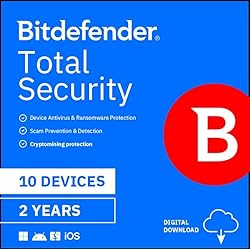VPN Legal Questions Answered: Is It Safe to Use?
When exploring VPN legal questions, one common concern stands out: Is it safe to use a VPN? As cybersecurity threats increase and privacy becomes more valuable, using a Virtual Private Network (VPN) has become a popular way for individuals and businesses to protect their online activity. However, understanding the legal landscape, as well as the security promises of VPNs, is essential to ensure both your safety and compliance with regulations.
What Is a VPN and How Does It Work?
Before diving into legality and safety, it’s helpful to understand what a VPN actually is. A VPN, or Virtual Private Network, creates an encrypted tunnel between your device and a remote server operated by the VPN provider. This tunnel masks your IP address and encrypts your internet traffic, making it much harder for hackers, ISPs, and other entities to track your online activity.
VPN Legal Questions: Is Using a VPN Legal?
The legality of using a VPN depends largely on where you are in the world. In most countries—including the United States, Canada, the United Kingdom, Australia, and the majority of the European Union—using VPN services is entirely legal for privacy and security. In these regions, individuals and businesses alike commonly use VPNs to safeguard sensitive data, access region-blocked content, and keep browsing habits private.
However, in some countries—including China, Russia, Iran, and North Korea—accessing or operating an unauthorized VPN can be illegal or heavily restricted. These governments often require the use of government-approved VPNs, which typically allow state surveillance. It is critical to research your local laws regarding VPN usage before connecting, especially if you are traveling or residing in a country with strict internet regulations.
Is It Safe to Use a VPN for Everyday Activities?
Safety is at the core of most VPN legal questions. If VPNs are legal to use in your jurisdiction, their security features make them an effective tool for protecting data from cybercriminals, snooping ISPs, and unsecured Wi-Fi networks. When using reputable, no-log VPN providers, your data remains confidential and your IP address hidden from most prying eyes.
However, not all VPNs are created equal. Free or poorly reputed VPN services may expose users to additional risks, such as:
– Data Logging: Some VPNs may log your browsing activity and personal information, potentially selling or leaking it.
– Weak Encryption: Inadequate encryption protocols can leave your data vulnerable to interception.
– Malware Risks: Some questionable VPN software can contain spyware or adware.
To stay safe, choose a reputable VPN provider with clear privacy policies, strong encryption standards, no-log guarantees, and positive independent security audits.
Can VPN Use Get You Into Legal Trouble?
For most users in countries where VPN use is permitted, merely connecting to a VPN is not against the law. Legal issues typically arise when a VPN is used as a tool to commit illegal activities, such as:
– Distributing copyrighted materials without permission (piracy)
– Engaging in cybercrime, fraud, or hacking
– Accessing or distributing prohibited content
It is important to remember that a VPN is a privacy tool, not a license to break the law. Courts can request VPN providers to share data during criminal investigations, so illegal activity conducted over VPNs may still be traceable in some cases, especially with services that log user data.
Best Practices for Using VPNs Safely and Legally
To maximize both your security and compliance, follow these guidelines:
– Research VPN laws in your country or any country you visit.
– Select reputable VPN providers with no-log policies and robust encryption.
– Avoid using VPNs for illegal activities.
– Regularly update your VPN application to maintain the latest security protections.
– Understand the terms of service of any sites or services you access—using a VPN to bypass geo-restrictions may violate their policies.
Conclusion
VPNs are powerful cybersecurity tools, but understanding VPN legal questions is essential for safe and lawful use. For most people, using a VPN is both legal and beneficial, so long as it is not leveraged for illegal purposes and is chosen from a reputable provider. Always be aware of local laws and best practices to ensure your privacy and security remain protected in today’s digital world.


